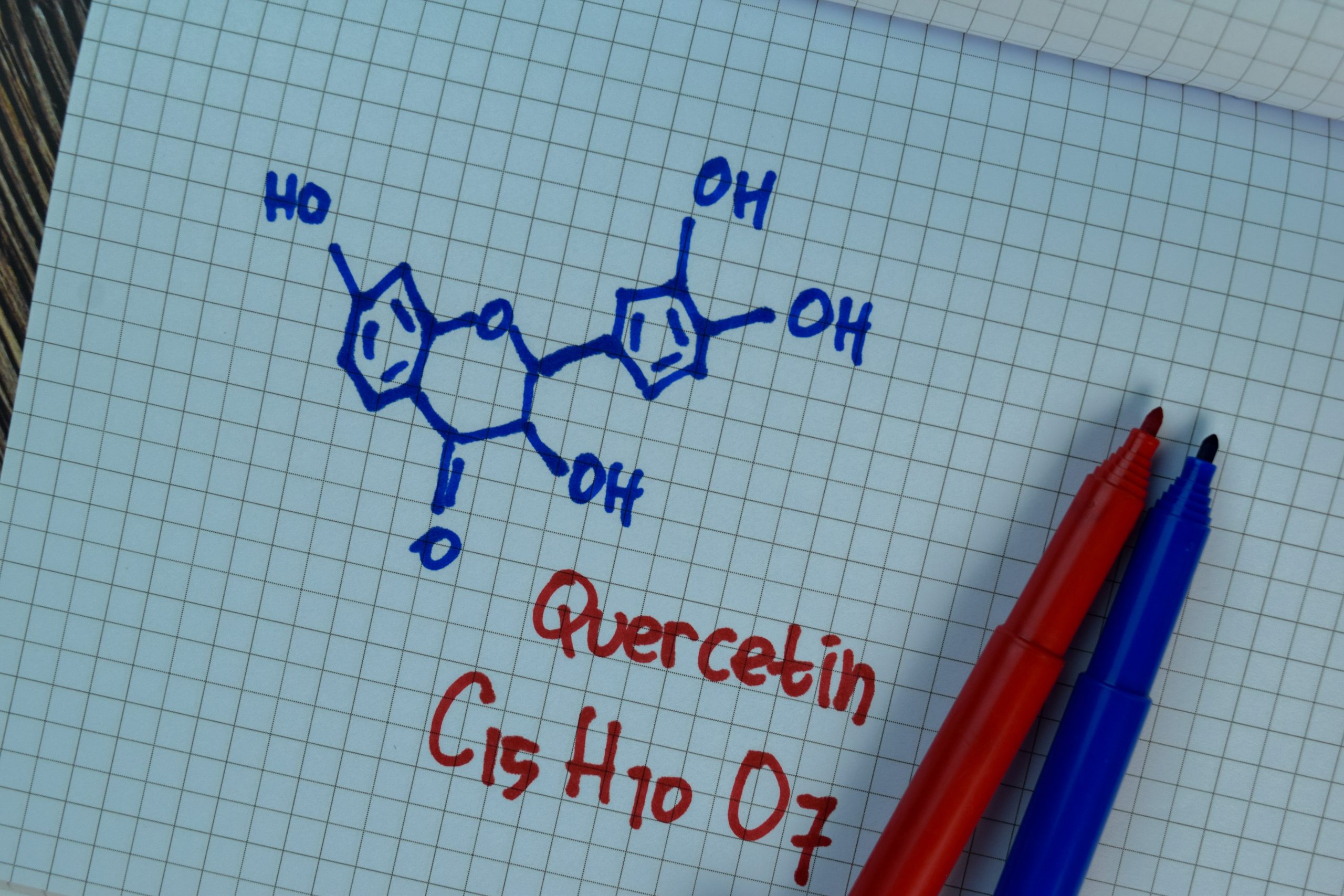Recently, there has been a heavy focus on researching the potential physical and cognitive benefits of specific natural food substances and nutritional supplements. One of the areas researchers have been focused on is the health-enhancing properties of flavonoids — a class of secondary plant metabolites found in many fruits and veggies. A lot of that research has been focused on quercetin — a flavonoid that is widely distributed in fruits and vegetables. Flavonoids are known to block inflammatory molecules in the brain.
Quercetin has been found to be a potent antioxidant that is capable of scavenging free radicals as well as protecting neuronal cells from neurotoxicity that is caused by oxidative stress.
What’s more, quercetin is an adenosine A1 receptor antagonist in vitro — meaning it can help reduce physical and mental fatigue as well as spatial memory, and it has even been shown to reverse cognitive deficits in mice. Additionally, the mice that were given quercetin supplements showed increased learning and memory function compared to non-treated mice.
What is Quercetin?
Quercetin is a plant pigment (flavonoid) that naturally occurs in many plants, fruits, and vegetables. It has antioxidant and anti-inflammatory effects that may help fight inflammation, kill cancer cells, control blood sugar, and help protect against heart disease.
Where is Quercetin Found?
As we mentioned, quercetin is found in many fruits and vegetables. It can also be found in grains, tea, and wine.
Quercetin is the most abundant flavonoid in the average person’s diet. It’s estimated that, on average, we consume from 10–100 mg of quercetin daily through various food sources.
Quercetin’s Impact on the Brain
The research we mentioned above suggests that quercetin’s antioxidant properties may help fight against degenerative brain disorders, including Alzheimer’s disease and dementia.
In one study, mice with Alzheimer’s were given quercetin injections every two days for a total of three months. By the end of the study, the injections were found to reverse several markers of Alzheimer’s, and the mice’s performance on learning tests was also improved.
Another study found that eating a diet high in quercetin reduced markers of Alzheimer’s disease and improved cognitive function in mice at the early to middle stages of Alzheimer’s.
The research on humans and the effect of quercetin on mental health are promising as well. In fact, one study found that three weeks of quercetin supplementation protected the human brain against mental fatigue and loss of sustained vigilance following three days of heavy exercise.
You may have heard that coffee is linked to a lower risk of Alzheimer’s. It turns out that it’s the quercetin, not the caffeine, that is the primary compound in coffee responsible for the potential protective effects against Alzheimer’s.
Sources of Quercetin
 If you’re eager to start reaping the potential cognitive benefits of quercetin, add more of these foods into your diet:
If you’re eager to start reaping the potential cognitive benefits of quercetin, add more of these foods into your diet:
- Green tea
- Black tea
- Capers
- Yellow peppers
- Green peppers
- Red onions
- White onions
- Shallots
- Broccoli
- Tomatoes
- Cooked asparagus
- Kale
- Red leaf lettuce
- Cherries
- Red apples
- Red grapes
- Citrus fruits
- All kinds of berries, including cranberries, blueberries, and raspberries
- Buckwheat
- Red wine
You can also take quercetin in supplement form. You can purchase quercetin supplements at most health food stores in capsule and powder form. The typical dosage ranges from 500–1,000 mg per day.
By itself, quercetin actually has a low bioavailability — meaning the body absorbs it poorly. This is why supplements often include other compounds like vitamin C or digestive enzymes such as bromelain to help increase absorption.
As the most abundant dietary flavonoid, quercetin has many health benefits, from brain health to improved exercise performance. Although these benefits are promising, we are looking forward to even more research being conducted on the substance.
Dr. Casey Sinclair, D.C. is a leading holistic healthcare doctor trained in functional medicine. He has extended his reach around the world by co-founding Family Health Advocacy, a health advocacy group lead by doctors and health professionals providing resources and education on global health matters. He has been fortunate to act as health a consultant to some of the largest companies in North America and as a professional speaker he’s had the privilege of speaking to thousands of people. Dr. Casey is an advocate for people suffering with chronic pain and fibromyalgia and has authored a book on the subject.

